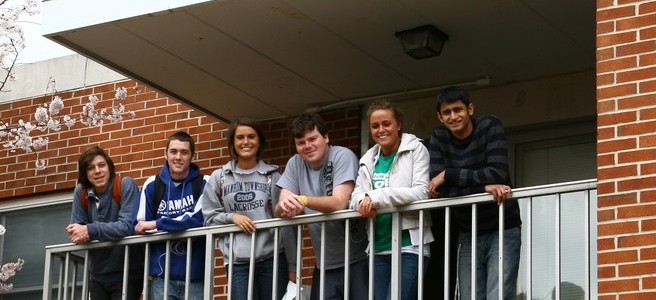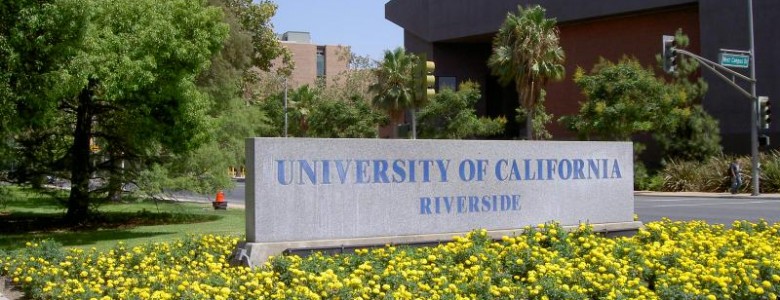In May 2014, Drexel University was awarded a $1.2 million, five-year grant from the Howard Hughes Medical Institute to fund initiatives to increase retention of STEM undergraduates, especially those in their first two years of college. One strategy is to assign STEM freshmen to mentored learning communities. These communities will have both selected faculty and… Read more »
 OK, let’s be honest. How many librarians out there took calculus in college? How many had to take it more than once? Future librarians are not the only ones who struggle with first-year college mathematics. Over 40% of students fail their first course in mathematics at the college level, and obviously, this impacts the retention… Read more »
OK, let’s be honest. How many librarians out there took calculus in college? How many had to take it more than once? Future librarians are not the only ones who struggle with first-year college mathematics. Over 40% of students fail their first course in mathematics at the college level, and obviously, this impacts the retention… Read more »
 This question has been running through my head since reading, “’Different People Have Different Prioirties’: Work-family Balance, Gender, and the Discourse of Choice” by Beddoes and Pawley in Studies in Higher Education. The article reports on an investigation of the continuing underrepresentation of women faculty in STEM fields. Both female and male faculty interviewees expressed… Read more »
This question has been running through my head since reading, “’Different People Have Different Prioirties’: Work-family Balance, Gender, and the Discourse of Choice” by Beddoes and Pawley in Studies in Higher Education. The article reports on an investigation of the continuing underrepresentation of women faculty in STEM fields. Both female and male faculty interviewees expressed… Read more »
 Over the summer, the National Center for Education Statistics (NCES) released the 2014 report from the Baccalaureate and Beyond Study, a four-year longitudinal study which started in 2008 and followed bachelor’s degree recipients as they went onto employment and/or further education. There are numerous tables showing the percentages of students who graduated with STEM degrees,… Read more »
Over the summer, the National Center for Education Statistics (NCES) released the 2014 report from the Baccalaureate and Beyond Study, a four-year longitudinal study which started in 2008 and followed bachelor’s degree recipients as they went onto employment and/or further education. There are numerous tables showing the percentages of students who graduated with STEM degrees,… Read more »
 Have you ever thought about living in a STEM dorm, or offering an embedded librarian service in one? A 2012 study published in The Journal of Higher Education (DOI: 10.1353/jhe.2012.0017) suggests that librarians could contribute to STEM retention through participation in field-specific residential programs, also known as living-learning (LL) programs. Soldner et al. surveyed 5240… Read more »
Have you ever thought about living in a STEM dorm, or offering an embedded librarian service in one? A 2012 study published in The Journal of Higher Education (DOI: 10.1353/jhe.2012.0017) suggests that librarians could contribute to STEM retention through participation in field-specific residential programs, also known as living-learning (LL) programs. Soldner et al. surveyed 5240… Read more »
 A University of California, Riverside (UCR) news site reports that the College of Natural and Agricultural Sciences received a $2.4 million grant from the Howard Hughes Medical Institute to add sections to the Dynamic Genome Course for freshmen, which provides “research immersion.” Currently, the students do original analysis of plant transposable elements, and new sections… Read more »
A University of California, Riverside (UCR) news site reports that the College of Natural and Agricultural Sciences received a $2.4 million grant from the Howard Hughes Medical Institute to add sections to the Dynamic Genome Course for freshmen, which provides “research immersion.” Currently, the students do original analysis of plant transposable elements, and new sections… Read more »
 While bridge or undergraduate research programs to increase retention are commendable, they only serve a limited number of students compared to the thousands of high school and community college students entering universities to study STEM. Over the summer I attended the final presentations of community college students participating in the Howard Hughes Medical Institute Summer… Read more »
While bridge or undergraduate research programs to increase retention are commendable, they only serve a limited number of students compared to the thousands of high school and community college students entering universities to study STEM. Over the summer I attended the final presentations of community college students participating in the Howard Hughes Medical Institute Summer… Read more »
 A Danish research group has applied the psychology theory, identity work, to understand why many high school students avoid entering STEM disciplines in college, despite enjoying and excelling in those subjects. In the 2014 International Journal of Science Education article, “To Choose or Not to Choose Science: Constructions of Desirable Identities among Young People Considering… Read more »
A Danish research group has applied the psychology theory, identity work, to understand why many high school students avoid entering STEM disciplines in college, despite enjoying and excelling in those subjects. In the 2014 International Journal of Science Education article, “To Choose or Not to Choose Science: Constructions of Desirable Identities among Young People Considering… Read more »
 A helpful way to understand why women and minorities struggle to persist in STEM majors in college is provided by the goal congruency theory from psychology. Jessi L. Smith, Erin Cech, Anneke Metz, Meghan Huntoon, and Christina Moyer used the theory to frame their research published in the 2014 article, “Giving Back or Giving Up:… Read more »
A helpful way to understand why women and minorities struggle to persist in STEM majors in college is provided by the goal congruency theory from psychology. Jessi L. Smith, Erin Cech, Anneke Metz, Meghan Huntoon, and Christina Moyer used the theory to frame their research published in the 2014 article, “Giving Back or Giving Up:… Read more »
 I started this blog in September 2013 with the metaphor and an image of the “STEM pipeline.” The metaphor assumes that all potential STEM professionals follow a similar career path, and those who don’t accomplish certain milestones or lack key attributes “leak out” of the pipeline. Cannady, Greenwald, and Harris make a convincing argument that… Read more »
I started this blog in September 2013 with the metaphor and an image of the “STEM pipeline.” The metaphor assumes that all potential STEM professionals follow a similar career path, and those who don’t accomplish certain milestones or lack key attributes “leak out” of the pipeline. Cannady, Greenwald, and Harris make a convincing argument that… Read more »
 OK, let’s be honest. How many librarians out there took calculus in college? How many had to take it more than once? Future librarians are not the only ones who struggle with first-year college mathematics. Over 40% of students fail their first course in mathematics at the college level, and obviously, this impacts the retention… Read more »
OK, let’s be honest. How many librarians out there took calculus in college? How many had to take it more than once? Future librarians are not the only ones who struggle with first-year college mathematics. Over 40% of students fail their first course in mathematics at the college level, and obviously, this impacts the retention… Read more »
 This question has been running through my head since reading, “’Different People Have Different Prioirties’: Work-family Balance, Gender, and the Discourse of Choice” by Beddoes and Pawley in Studies in Higher Education. The article reports on an investigation of the continuing underrepresentation of women faculty in STEM fields. Both female and male faculty interviewees expressed… Read more »
This question has been running through my head since reading, “’Different People Have Different Prioirties’: Work-family Balance, Gender, and the Discourse of Choice” by Beddoes and Pawley in Studies in Higher Education. The article reports on an investigation of the continuing underrepresentation of women faculty in STEM fields. Both female and male faculty interviewees expressed… Read more »
 Over the summer, the National Center for Education Statistics (NCES) released the 2014 report from the Baccalaureate and Beyond Study, a four-year longitudinal study which started in 2008 and followed bachelor’s degree recipients as they went onto employment and/or further education. There are numerous tables showing the percentages of students who graduated with STEM degrees,… Read more »
Over the summer, the National Center for Education Statistics (NCES) released the 2014 report from the Baccalaureate and Beyond Study, a four-year longitudinal study which started in 2008 and followed bachelor’s degree recipients as they went onto employment and/or further education. There are numerous tables showing the percentages of students who graduated with STEM degrees,… Read more »
 Have you ever thought about living in a STEM dorm, or offering an embedded librarian service in one? A 2012 study published in The Journal of Higher Education (DOI: 10.1353/jhe.2012.0017) suggests that librarians could contribute to STEM retention through participation in field-specific residential programs, also known as living-learning (LL) programs. Soldner et al. surveyed 5240… Read more »
Have you ever thought about living in a STEM dorm, or offering an embedded librarian service in one? A 2012 study published in The Journal of Higher Education (DOI: 10.1353/jhe.2012.0017) suggests that librarians could contribute to STEM retention through participation in field-specific residential programs, also known as living-learning (LL) programs. Soldner et al. surveyed 5240… Read more »
 A University of California, Riverside (UCR) news site reports that the College of Natural and Agricultural Sciences received a $2.4 million grant from the Howard Hughes Medical Institute to add sections to the Dynamic Genome Course for freshmen, which provides “research immersion.” Currently, the students do original analysis of plant transposable elements, and new sections… Read more »
A University of California, Riverside (UCR) news site reports that the College of Natural and Agricultural Sciences received a $2.4 million grant from the Howard Hughes Medical Institute to add sections to the Dynamic Genome Course for freshmen, which provides “research immersion.” Currently, the students do original analysis of plant transposable elements, and new sections… Read more »
 While bridge or undergraduate research programs to increase retention are commendable, they only serve a limited number of students compared to the thousands of high school and community college students entering universities to study STEM. Over the summer I attended the final presentations of community college students participating in the Howard Hughes Medical Institute Summer… Read more »
While bridge or undergraduate research programs to increase retention are commendable, they only serve a limited number of students compared to the thousands of high school and community college students entering universities to study STEM. Over the summer I attended the final presentations of community college students participating in the Howard Hughes Medical Institute Summer… Read more »
 A Danish research group has applied the psychology theory, identity work, to understand why many high school students avoid entering STEM disciplines in college, despite enjoying and excelling in those subjects. In the 2014 International Journal of Science Education article, “To Choose or Not to Choose Science: Constructions of Desirable Identities among Young People Considering… Read more »
A Danish research group has applied the psychology theory, identity work, to understand why many high school students avoid entering STEM disciplines in college, despite enjoying and excelling in those subjects. In the 2014 International Journal of Science Education article, “To Choose or Not to Choose Science: Constructions of Desirable Identities among Young People Considering… Read more »
 A helpful way to understand why women and minorities struggle to persist in STEM majors in college is provided by the goal congruency theory from psychology. Jessi L. Smith, Erin Cech, Anneke Metz, Meghan Huntoon, and Christina Moyer used the theory to frame their research published in the 2014 article, “Giving Back or Giving Up:… Read more »
A helpful way to understand why women and minorities struggle to persist in STEM majors in college is provided by the goal congruency theory from psychology. Jessi L. Smith, Erin Cech, Anneke Metz, Meghan Huntoon, and Christina Moyer used the theory to frame their research published in the 2014 article, “Giving Back or Giving Up:… Read more »
 I started this blog in September 2013 with the metaphor and an image of the “STEM pipeline.” The metaphor assumes that all potential STEM professionals follow a similar career path, and those who don’t accomplish certain milestones or lack key attributes “leak out” of the pipeline. Cannady, Greenwald, and Harris make a convincing argument that… Read more »
I started this blog in September 2013 with the metaphor and an image of the “STEM pipeline.” The metaphor assumes that all potential STEM professionals follow a similar career path, and those who don’t accomplish certain milestones or lack key attributes “leak out” of the pipeline. Cannady, Greenwald, and Harris make a convincing argument that… Read more »


